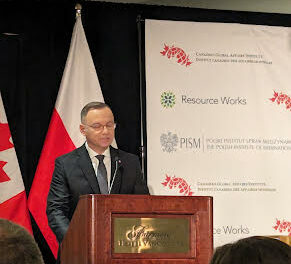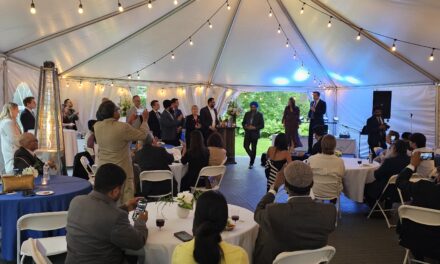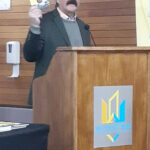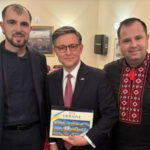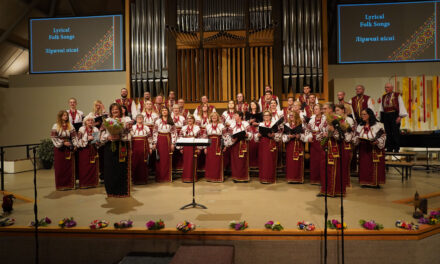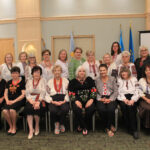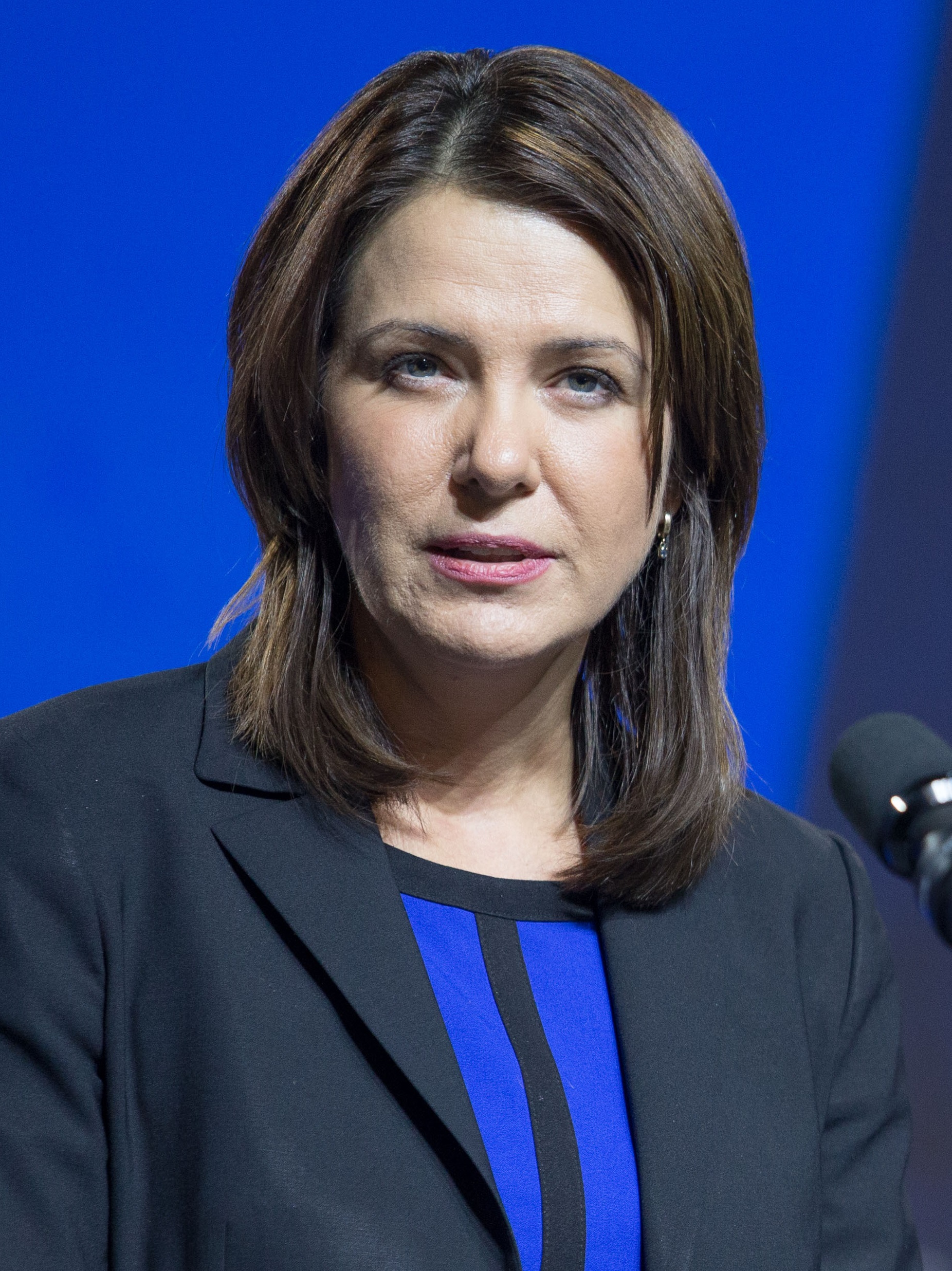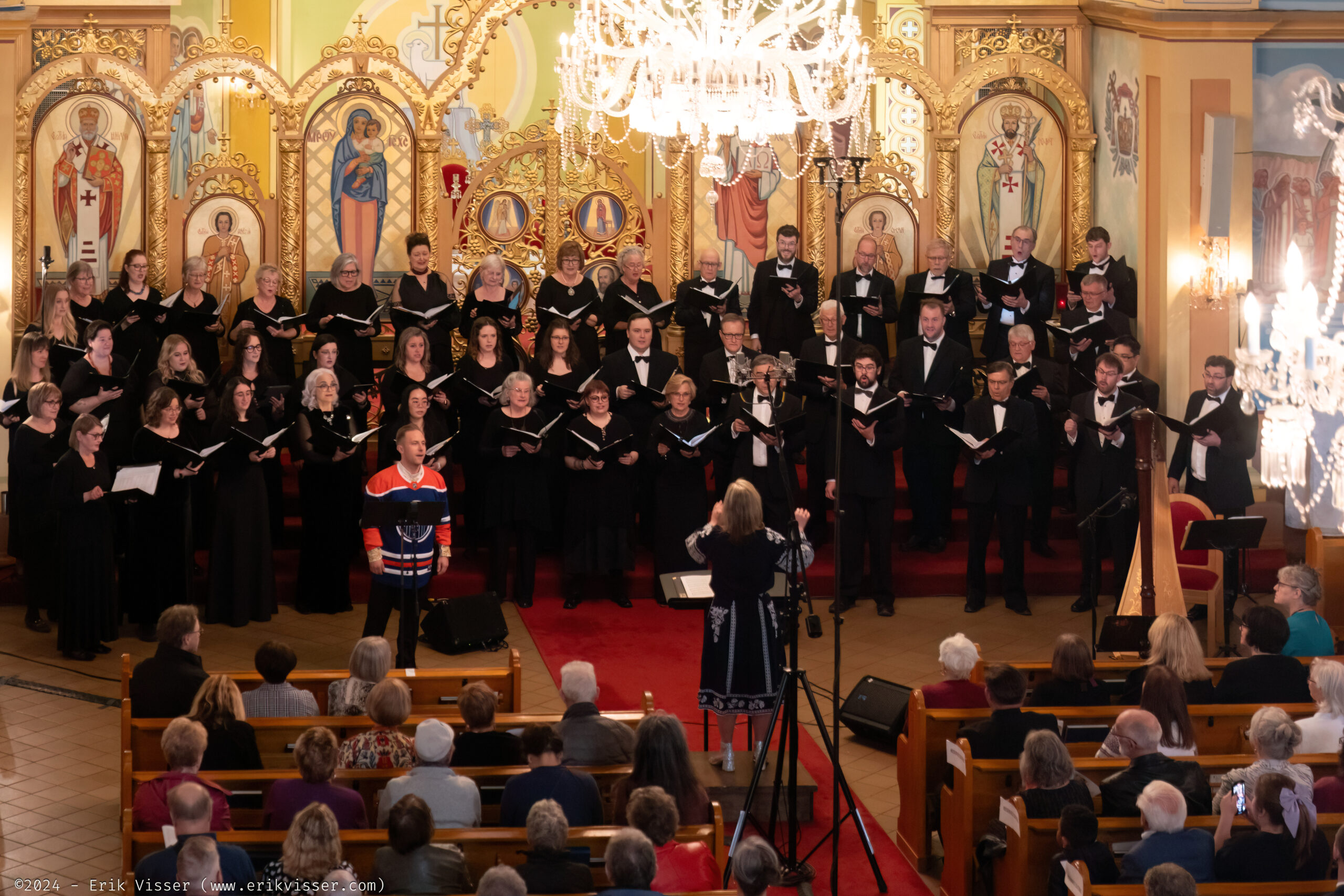Alberta Premier Danielle Smith
NP-UN Western Bureau.
Alberta Premier Danielle Smith says she will have Advanced Education Minister Rajan Sawhney talk to the University of Alberta about their decision to cut off funding for the Canadian Institute of Ukrainian Studies (CIUS), but the decision to do so remains with the university itself.
“When you see such a large number of Ukrainian evacuees have chosen Alberta largely because of our large diaspora of Ukrainians that have been here for over 100 years it does seem like peculiar timing. As I said I don’t know that I would have any authority to reverse their decision, but I can certainly raise it with minister so that I can understand some of the background to it,” she stated during an online roundtable with multicultural media, June 5.
She was responding to a question from New Pathway – Ukrainian News Western Bureau Chief Marco Levytsky who noted that the Faculty of Arts at the U of A informed the CIUS that as of the 2025-2026 fiscal year no funding will be provided to sustain its operations, adding that the CIUS, which is renowned world-wide as a leading centre of scholarly Ukrainian research, publication and education.
“Given the important contribution that Ukrainians have made to the history of Alberta, and the current influx of some 70,000 Ukrainian refugees fleeing Russia’s genocidal war in Ukraine, what can your government do to sustain this institution which has been doing impressive work almost half a century, now that it is more important than ever?” he queried.
The Faculty of Arts, which last year provided $480,000 for the CIUS announced it would eliminate funding for all institutes in response to provincial cutbacks. The CIUS is the largest of all the institutes at the university accounting for 50% of the budget.
It was founded in 1976 and funded entirely for several years directly from the provincial budget before being incorporated in the university’s budget along with money provided by the government to maintain CIUS into the future.
Smith noted that she found the cutback for CIUS “surprising” and suggested its supporters should contact the university president.
Connect FM Ukrainian representative Yulianna Voloshyna asked whether there would be any provincial programs available for Ukrainian refugees which would allow them to stay in Alberta legally after their work permits under the Canada-Ukraine Authorization for Emergency Travel (CUAET) program run out.
Smith replied that the provincial nominee program is a road to permanent residency and citizenship but historically Alberta has had very few nominations to make. When she first got elected 6,300 were allowed by the federal government. She asked for it to be increased and got over 10,000. She asked again to increase it to 20,000 “which would put us in sync with other provinces and they turned us down.”
“In fact, not only did they say no, they reduced the amount provincial nominees were allowed to have down to 9750 and that’s not nearly enough.”
Already applications for this year have been oversubscribed prompting the provincial government to process them on a monthly basis.
“Rather than having a huge flood we’ll have a certain number of positions that we keep open each month so we will be accepting new applications,” she explained.
The Premier added that other provinces are also frustrated with the federal limits.
“We think we can do a better job of matching the newcomers with the opportunities that are here. The federal government so far hasn’t budged but we’ll keep on trying.”
Ukrainian Echo representative Lidia Wasylyn noted that when the Canadian policy of multiculturalism was adopted in 1971, there was a focus on multicultural education and language learning adding:
“Over the years, multiculturalism in education has been diminished into a somewhat superficial add-on in classrooms where students are encouraged to share visible symbols of their heritage and cultural identity, such as foods, dance, festivals and folklore, Since education is a provincial responsibility, is the province prepared to strengthen true heritage language education through:
“First: recognition of the vital importance of heritage language education to build a well educated and highly skilled workforce for the future economy and
“Second: through significantly increased funding to support Heritage Language Education that would support teacher training, international teacher and student exchanges and accessibility to education for students in their communities?”
Smith replied that “we fund our education system to the tune of 9.3 billion a year through 66 different school boards all of whom have multiple schools that make their own programming decisions and I am delighted to see that where numbers warrant we are seeing that diversity in language programing.”
“I take your point about wanting to make sure that there is a robust understanding of the diversity that we have… it’s more than just food and drink and dance and folklore. We have to understand why people chose this place… and our education program begins about talking about these things. Why did people choose to come here,” she added.
Share on Social Media




